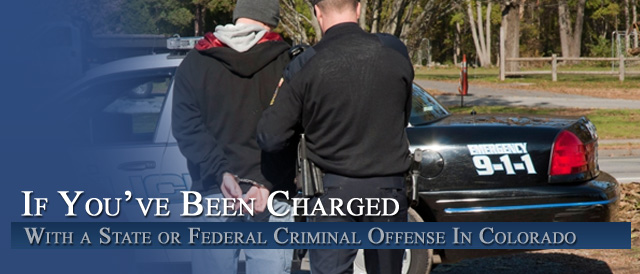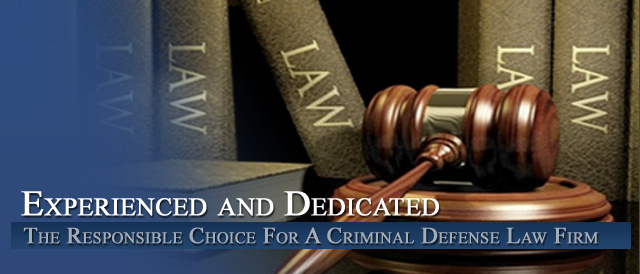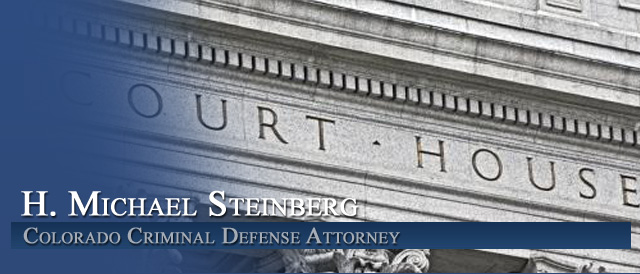




Colorado Criminal Defense Law: Criminally Negligent Homicide (18-3-105)
Criminally Negligent Homicide (18-3-105)
Any person who causes the death of another person by conduct amounting to criminal negligence commits criminally negligent homicide which is a class 5 felony.
Criminally”Negligent Homicide” occurs when a person commits an act of criminal negligence which causes the death of another person. “criminal negligence” means the following: with respect to the result, or to a circumstance, a person fails to perceive a substantial and unjustifiable risk the result will occur, or that the circumstance exists. The risk must be of such a nature and degree that failure to perceive it constitutes a gross deviation from the standard of care that a reasonable person would observe in the situation.
To be guilty of criminally negligent homicide, the defendant must fail to perceive a substantial and unjustifiable risk that a certain result will occur, and the risk must be of such a nature that the defendant’s failure to perceive it constitutes a gross deviation from a reasonable person’s standard of care.
This is very similar to Manslaughter, however, Manslaughter is “recklessness” standard involves gross deviation from a standard of conduct verses a “negligence” standard involving a gross deviation from a standard of care. Speed, minus the presence of alcohol or drugs is normally the factors a DA – Prosecutor will look to in making a decision whether or not to charge a person with Negligent Homicide instead of Manslaughter.
Manslaughter (18-3-104)
-
A person commits the crime of manslaughter if:
(a) Such person recklessly causes the death of another person; or
(b) Such person intentionally causes or aids another person to commit suicide.
(c) (Deleted by amendment, L. 96, p. 1844, § 13, effective July 1, 1996.)
-
Manslaughter is a class 4 felony.
-
This section shall not apply to a person, including a proxy decision-maker as such person is described in section 15-18.5-103, C.R.S., who complies with any advance medical directive in accordance with the provisions of title 15, C.R.S., including a medical durable power of attorney, a living will, or a cardiopulmonary resuscitation (CPR) directive.
-
(a) This section shall not apply to a medical caregiver with prescriptive authority or authority to administer medication who prescribes or administers medication for palliative care to a terminally ill patient with the consent of the terminally ill patient or his or her agent.
(b) For purposes of this subsection (4):
(I) “Agent” means a person appointed to represent the interests of the terminally ill patient by a medical power of attorney, power of attorney, health care proxy, or any other similar statutory or regular procedure used for designation of such person.
(II) “Medical caregiver” means a physician, registered nurse, nurse practitioner, or physician assistant licensed by this state.
(III) “Palliative care” means medical care and treatment provided by a licensed medical caregiver to a patient with an advanced chronic or terminal illness whose condition may not be responsive to curative treatment and who is, therefore, receiving treatment that relieves pain and suffering and supports the best possible quality of his or her life.
(c) Paragraph (a) of this subsection (4) shall not be interpreted to permit a medical caregiver to assist in the suicide of the patient.
But Compare Colorado’s Law of Vehicular Homicide -18-3-106. Vehicular homicide.
The crucial difference between these two laws is that in the vehicular homicide statute requires for conviction that the prosecution prove the additional element of a death caused through the use of a motor vehicle.
The Colorado Courts have also held that the more severe penalty for vehicular homicide does not deny equal protection… and that legislature’s decision to provide a more severe penalty for vehicular homicide than for criminal negligent homicide is arbitrary or unreasonable. The state has a legitimate interest in discouraging a specific evil which it believes to be of greater societal consequence. This choice does not offend equal protection.
18-3-106. Vehicular homicide.
(1) (a) If a person operates or drives a motor vehicle in a reckless manner, and such conduct is the proximate cause of the death of another, such person commits vehicular homicide.
(b) (I) If a person operates or drives a motor vehicle while under the influence of alcohol or one or more drugs, or a combination of both alcohol and one or more drugs, and such conduct is the proximate cause of the death of another, such person commits vehicular homicide. This is a strict liability crime.
(II) For the purposes of this subsection (1), one or more drugs shall mean all substances defined as a drug in section 12-22-303 (13), C.R.S., and all controlled substances defined in section 12-22-303 (7), C.R.S., and glue-sniffing, aerosol inhalation, or the inhalation of any other toxic vapor or vapors as defined in section 18-18-412.
(III) The fact that any person charged with a violation of this subsection (1) is or has been entitled to use one or more drugs under the laws of this state shall not constitute a defense against any charge of violating this subsection (1).
(IV) “Driving under the influence” means driving a vehicle when a person has consumed alcohol or one or more drugs, or a combination of alcohol and one or more drugs, which alcohol alone, or one or more drugs alone, or alcohol combined with one or more drugs affect such person to a degree that such person is substantially incapable, either mentally or physically, or both mentally and physically, of exercising clear judgment, sufficient physical control, or due care in the safe operation of a vehicle.
(c) Vehicular homicide, in violation of paragraph (a) of this subsection (1), is a class 4 felony. Vehicular homicide, in violation of paragraph (b) of this subsection (1), is a class 3 felony.
Possible Colorado Defenses to the Charge of Criminally Negligent Homicide
The key to defending a vehicular Negligent Homicide charge normally lies within a proper accident reconstruction. It will be important to show that, first and foremost, the accident was the other person’s fault. In addition, it must be shown that the Defendant was not “reckless”. Again, the standard of “recklessness” in Colorado is that the Defendant was aware of and consciously disregarded a substantial and unjustifiable risk that the result would occur or that a dangerous circumstance existed.
The risk must be of such a nature and agree that disregard of such risk constitutes a gross deviation from the standard of care that a reasonable person would observe in the situation. The key is demonstrating that the Defendant did not ignore a “substantial and unjustifiable risk” and that the “care” he undertook was not a “gross deviation from the standard of the norm”.
If the Prosecutor is claiming that speed was a factor, then we must show that the speed was not a “gross deviation from the norm”. Speeding does not become criminal, by statute, until it exceeds twenty-one (21) miles or more over the posted speed limit. If alcohol was a factor, then we must utilize all of the standard DUI defenses to show that breath / blood testing devices were inaccurate in their measurements. Lastly, the use of an expert – such as engineer to check the car for any vehicle defects which may account for the accident.
The “Common Defenses“, which may apply in any criminal case are numerous and diverse. One of the most common defenses is a possible “Miranda Rights Violation.”
In Colorado, the standard of whether any inculpatory statement (i.e., a statement which tends to admit guilt) is admissible into evidence is based upon a “Voluntariness” standard. If it can be demonstrated that the police coerced the suspect (i.e., intimidated or tricked you) into making a confession or inculpatory statement, or that they did not properly read you your Miranda Rights, before you were interrogated, then a motion to suppress those statements and any evidence gathered as a direct result of the statements may be successful.
Denial of the Right to Counsel is another possible common defense which may be raised. This occurs when a suspect is in custody and requests to speak to their lawyer, that request is denied ut the questioning continues. In certain kinds of cases, it is mandatory that you be permitted to speak to an attorney.
Other defenses include challenging the validity of any search warrant, or whether there were any “forensic flaws” during the investigation of your case. This could include exposing flawed procedures regarding blood, breath, and urine testing; fingerprints analysis; DNA testing; etc.
Finally, one of the most common defenses is exposing sloppy or misleading police reports which include everything from misstatements, false statements, flawed photo line-ups and inaccurate crime scene reconstruction.
Other Articles of Interest:
- 002. COLORADO CRIMINAL CODE – OFFENSES AGAINST PERSONS – HOMICIDES
- Colorado Criminal Law: Violent Crimes – Murder, Manslaughter, and Criminally Negligent Homicide
- Violent Crimes: Homicide, Aggravated Robbery, etc.
- Our Qualifications
- Colorado Criminal Law – The Principle of Aiding and Abetting – and The “Mere Presence Doctrine”












